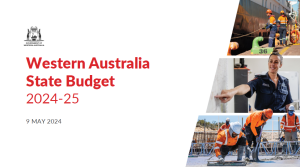WACOSS Submission to the Ombudsman Western Australia on the Parliamentary Commissioner Amendment (Reportable Conduct) Act 2020.
WACOSS regularly convenes the Children’s Policy Advisory Council (CPAC), which brings together WACOSS Member Organisations in order to ensure a cohesive whole of sector response is developed around children’s policy in Western Australia. Input and insights from attendees at the regular consultative forums are used to directly shape WACOSS policy agenda, engagement with key decision makers, and advocacy to improve outcomes for children, young people and families in Western Australia. In accompaniment to this submission, CPAC held a briefing and consultation with the Ombudsman’s Office to coordinate sector feedback and input on 1 February, 2021. This consultation also included discussion of the wider recommendations from the Royal Commission into Institutional Responses to Child Sexual Abuse concerning systemic oversight led by Department of Premier and Cabinet, and hence considered where the Reportable Conduct Scheme (RCS) fitted with other issues including Child Safe Standards and oversight of out-of-home care and justice services.
WACOSS supports the strengthening of safeguards for children and young people in Western Australia that foster their development, health and wellbeing, safety and dignity. WACOSS fully endorses the establishment of a Reportable Conduct Scheme for Western Australia, based on the recommendation of the Royal Commission that state and territory governments should establish nationally consistent legislative (reportable conduct) schemes. 1 WACOSS supports the need to ensure establishment of an impartial, independent oversight of the Reportable Conduct Scheme as part of an integrated, whole-of-government response.
As detailed by the Royal Commission, 2 the potential benefits of nationally consistent reportable conduct schemes are significant, including: increased identification and reporting of institutional child sexual abuse; improved capacity of institutions to receive and respond to complaints; strengthening of the equal protection of children from child sexual abuse in institutions regardless of their circumstances and geographic location; and the bolstering of other recommendations that the Royal Commission has made – particularly on Child Safe Standards, complaint handling, Working With Children Checks and information sharing.
In this context, we also believe that it is important to consider carefully how these oversight, capacity building and complaints handling functions interact and are integrated across government, sectors, services and communities within WA. This includes oversight of Child Safe Standards and workforce training in public and community services; independent oversight of out of home care services; as well as the implementation of child safety standards and reportable conduct within the youth justice system.
Oversight Functions
We note that there has been some discussion of the extent to which it may be potentially confusing to separate these functions across different roles or statutory authorities. There is a critical balance to be achieved between the efficiency and effectiveness of building on existing roles and expertise that are complementary to the needs of a Reportable Conduct Scheme (and other Royal Commission recommendations), and the desire to have one single point of contact and coordination across child and family safety and wellbeing issues. We also note that one of the stated goals of the Royal Commission recommendations is national consistency in the identification and reporting of child sexual abuse. We consider it is important to look at best practice in other jurisdictions and the lessons learned by previous efforts in other states and then consider them in light of existing arrangements, capabilities and legislation in WA. We note however there may be some divergence in approaches taken in different jurisdictions, with larger states pursuing single central independent authorities, and smaller states looking to extend existing roles across multiple established authorities already carrying out related roles and activities.
WACOSS and the Children’s Policy Advisory Council have discussed these issues and concerns, identifying a number of key questions and principles as discussed herein, but have not settled on an agreed policy position. We consider that these are critical issues that need to be carefully weighed up and should be more explicitly focused on in consultations about the implementation of the Royal Commission recommendations, Child Safe Standards and the Reportable Conduct Scheme.
In reviewing the New South Wales Reportable Conduct Scheme, first implemented in 1999, the Royal Commission acknowledged that “ongoing efforts to improve understanding of, and engagement with, the scheme are important for reducing under-reporting and mishandling of institutional child sexual abuse complaints,”3 and that there are still knowledge and capacity gaps in some agencies and sectors. We note that, having originally implemented these functions separately, NSW has moved more recently to integrate these roles within the Office of the NSW Children’s Guardian to address these concerns (with an exposure draft released for consultation 16 December 2020). 4 In Victoria, these roles and responsibilities have come under the Office of the Commissioner for Children and Young People since 2017 (noting also the role of Victorian Commissioner for Aboriginal Children and Young People was established in 2018). There they combine reportable conduct functions (receiving allegations and findings of reportable conduct, assessing organisational capacity and compliance, investigations together with building the capacity of organisations to respond to allegations of abuse) together with their responsibility to oversight and develop capacity on child safe principles and standards, their responsibility for monitoring and reporting on children’s rights (including oversight of out-of-home care, child protection and justice systems) and their role in capturing the voices of children and young people and systemic advocacy.
In consulting with child and family services, advocates for children and young people and the victims of abuse and with the wider WA community, we believe more attention needs to be given explicitly to how these roles are to be integrated across the whole of government and community services, based on who is best placed with the knowledge and skills as well as the established relationships and ways of working needed to perform them effectively. We note the draft green bill prepared by the WA Ombudsman’s Office appears to imply that a decision has already been made that they should perform this role, as does the discussion paper on the Independent Oversight System Consultation on the Department of Premier and Cabinet (DPC) website. We are not certain whether a decision has been formally made and publicly announced by Cabinet, as implied. At the same time, we note that the DPC discussion paper also references the discussion paper and recommendations of the Commissioner for Children and Young People (CCYP) in relation to oversight of Child Safe Standards and independent oversight of out of home care services, without necessarily stating whether these roles should be performed by the CCYP. We note that the report of the Joint Standing Committee on the Commissioner for Children and Young People (JSC) support independent oversight of Child Safe Standards and appear to endorse many of the Commissioner’s recommendations.
While the Government response to the JSC report accepts, or accepts in principle, all of the JSC recommendations, it also does not state explicitly where that role should sit.
Supporting Children and Young People
WACOSS recognises the capacity demonstrated by the Ombudsman’s Office in relation to its existing oversight and investigative functions, together with its capability for systems analysis and public sector governance. This all suggests that it is eminently capable of undertaking oversight of reportable conduct policy and practice within organisations; assessing the efficacy of individual inquiries into reported conduct by organisations; and undertaking independent investigations when necessary. We note that reporting under the scheme as envisaged deals specifically with CEOs and staff members within organisations deemed to come under the RCS – and hence children and young people experiencing inappropriate and potentially abusive behaviour, those trusted adults to who they may disclose, or adult survivors of historic child abuse are not expected to be directly contacting the Ombudsman’s Office to report allegations of abuse. This issue was raised as a concern in the discussion with the Children’s Policy Advisory Council, who indicated a firm conviction that, when it comes to children and young people, trusted adults or former victims of abuse reporting, that engagement should very much build upon, extend and resource existing expertise, knowledge and relationships in this area. This includes recognising the excellent work done by CREATE Foundation and the Office of the Commissioner for Children and Young People in capturing and supporting the voices of children and young people, particularly those who are vulnerable or dealing with complex trauma. It also includes recognising the need for children, young people and adult survivors to receive assistance and timely support to navigate the system and deal with complex trauma when they are reporting abuse.
The insight and advice on this issue during our consultations from CREATE Foundation on their experience working with young people in these circumstances was particularly informative. They indicated that young people who have experienced trauma want both clear and accessible information about systems and processes (so they understand what is happening and what to expect) and they want support and individual advocacy through the process from someone that they trust. This is important both in terms of supporting and empowering their agency during the process, and in recognising that when traumatic and stressful issues are being dealt with, it is easy for the young person affected to be overwhelmed and struggle to keep track of everything. While we note that in oversighting the proposed Reportable Conduct Scheme the Ombudsman’s Office is not expected to be engaging directly with children and young people or adult survivors of abuse, there is some responsibility for ensuring that organisations have put safe arrangements into place once potentially abusive conduct is reported, which should include access to individual advocacy, support services and therapeutic responses to trauma, where appropriate.
Supporting Service Delivery
This is important because of the critical concern raised by CPAC members in relation to access to therapeutic services. Organisations delivering Child Sexual Abuse Trauma Services (CSATS) repeated concerns about existing wait lists and levels of unmet need (formerly discussed by CPAC, and currently under review) about diminishing capacity to deliver services, reductions in client numbers and service operating hours as a result of restricted funding. For example, one service reported they and other services are on their fifth one-year contract extension with no increase in funding, despite increased service costs and rising award wages. WACOSS believes that, in line with the Royal Commission recommendations, these existing services need to be better resourced to reduce waitlists and ensure they are well-placed to support any increased demand for therapeutic services, as well as individual advocacy and support, arising from the promotion of improved reporting processes and increased reporting.
WACOSS welcomes the progress made by the Ombudsman’s Office in developing the green bill. We note with concern however that the impact of shifting COVID-19 priorities within government has meant that consultation processes in other areas relating to the implementation of the Royal Commission recommendations have been delayed to varying degrees. This includes Child Safe Standards, capacity building and workforce development, as well as independent oversight of out- of-home care services and the justice system. While these delays are understandable during a crisis,
we believe that it is critical to ensure that these consultations and processes align to ensure effective whole-of-government responses and system integration. This should not stop us from putting in place an appropriate and effective Reportable Conduct Scheme, but it does mean that greater effort will be required to ensure coherence across different areas of policy and systems development. It may also mean that we may want to make provisions within the RCS to enable us to revisit and review the scheme in light of other developments.
WACOSS suggests that ongoing dialogue with the sector is likely to be necessary to identify how best to assist small agencies with limited resources to effectively comply with the Reportable Conduct Scheme and to implement Child Safe Standards. To ensure a best-practice approach across Western
Australia, we propose that specific, standardised resources for investigation plans, reports and other appropriate documents should be developed and provided to the designated agencies for use, as well as the provision of regular, specialised training and education for heads of designated agencies and employees. We would hope such an approach would investigate and build upon existing systems and practices, such that those who already have in place effective child safe systems do not need to change or duplicate activities. Supplementary resources might also be tailored to meet the needs of particular sectors and service types. 5
The protection and best interests of children are paramount considerations for our communities, agencies and governments, and WACOSS fully endorses the promotion of shared responsibility for the protection of children that the RCS promotes.
1 Royal Commission into Institutional Responses to Child Sexual Abuse(2017) ‘Final Report: Recommendations’.
2 Royal Commission into Institutional Responses to Child Sexual Abuse(2017) ‘Final Report: Improving institutional responding and reporting’.
3 Royal Commission into Institutional Responses to Child Sexual Abuse (2017) ‘Final Report: Improving institutional responding and reporting’.
4 Exposure Draft of the Children’s Guardian Amendment (ChildSafe Scheme)Bill 2020, NSW Office of the Children’s Guardian.




